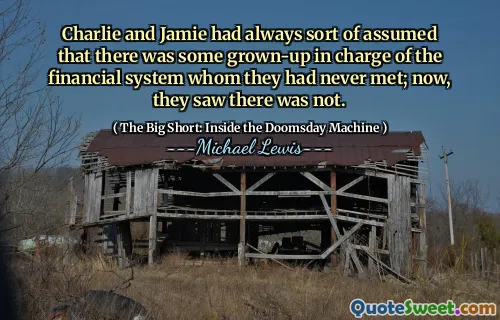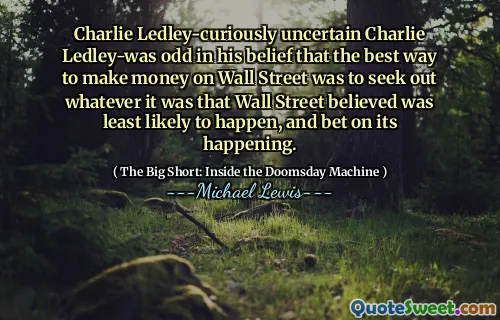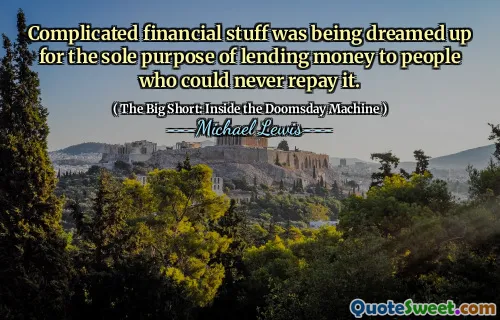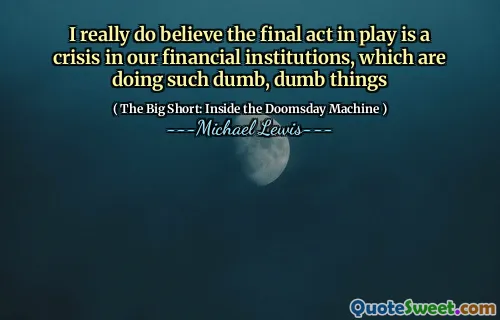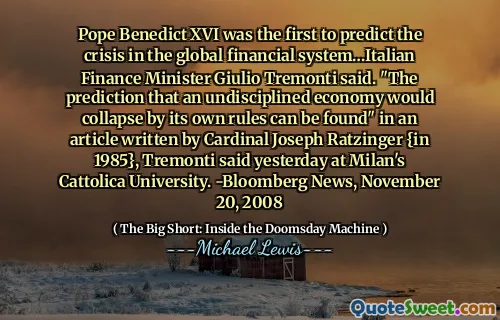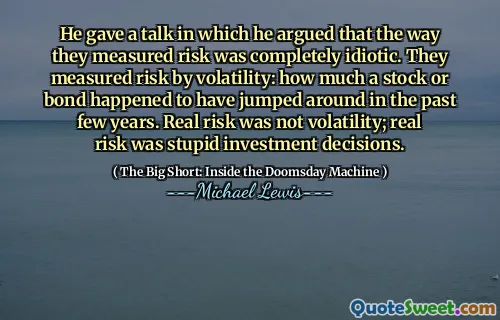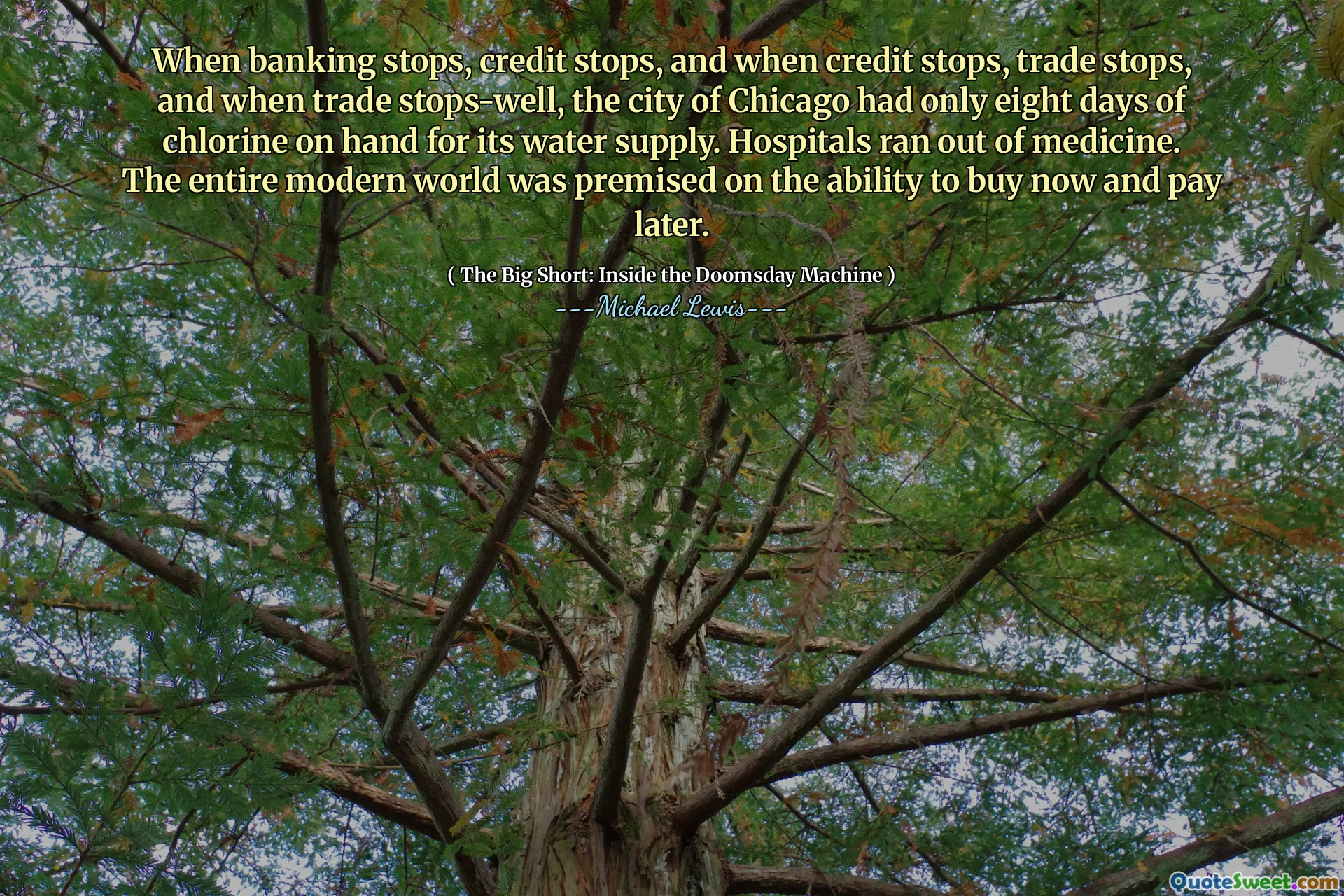
When banking stops, credit stops, and when credit stops, trade stops, and when trade stops-well, the city of Chicago had only eight days of chlorine on hand for its water supply. Hospitals ran out of medicine. The entire modern world was premised on the ability to buy now and pay later.
In "The Big Short: Inside the Doomsday Machine," Michael Lewis highlights the interconnectedness of banking, credit, and trade in modern society. He emphasizes that when banking ceases to function, it disrupts credit availability, leading to a halt in trade. This domino effect can create severe consequences, as illustrated by the case of Chicago, which faced critical failures in essential services with limited supplies of chlorine for its water and hospitals running out of medicine.
The author underscores that the entire framework of contemporary life relies heavily on the credit system, where consumers can purchase goods and services with the promise of future payment. The underlying fragility of this system becomes apparent during financial crises, revealing just how quickly essential services and day-to-day living can be jeopardized when credit flows are interrupted.
